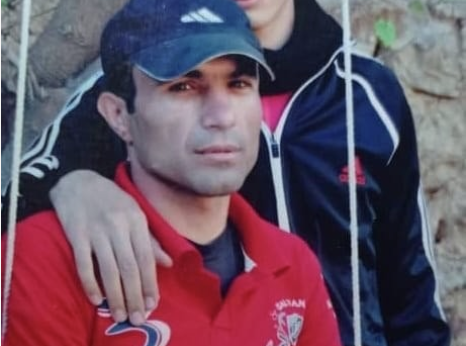Iran: Man Facing Imminent Protest-Related Execution

Mojahed Kourkouri was arrested on 20 December 2022 near Ghalehtol, Khuzestan province, by agents from the Ministry of Intelligence, Revolutionary Guards and the Law Enforcement Command of the Islamic Republic of Iran (known by its Persian acronym, FARAJA) during what state media reported as an “armed clash”. During his arrest, Mojahed Kourkouri sustained injuries to his knee from live ammunition and to his arm from grenade shrapnel. After late April 2023, during infrequent brief phone calls to his family, Mojahed Kourkouri said that “they [authorities] will kill me”, and said he was in a great deal of pain, including in his injured knee, and in need of healthcare. He also said he believed authorities were forcibly administering chemical substances on him. In late April 2023, Mojahed Kourkouri’s independently chosen lawyer learned that he was being held in Sheiban prison and was permitted to briefly visit him.
According to information received by Amnesty International, Mojahed Kourkouri was not at the protests taking place in Izeh on 16 November 2023. Relatives of Kian Pirfalak, the nine-year-old child fatally shot by security officials that day, have also repeatedly stated publicly that Mojahed Kourkouri was not involved in the killing of their loved-one; and have repeatedly and publicly attributed responsibility to Iran’s security forces.
Amnesty International previously documented how plainclothes security officials fatally shot Kian Pirfalak with live ammunition during protests in Izeh on 16 November 2022. Security forces fired toward the car in which Kian Pirfalak was travelling with his family. During Kian Pirfalak’s funeral service on 18 November 2022, his mother, Mahmonir (Zeinab) Molaierad, publicly described the details of the fatal incident and said: “Hear it from me about how the shooting happened so they [the authorities] can't say it was by ‘terrorists’, because they are lying.”
Mahmonir Molaierad described that they were on their way to their house in Izeh when they reached an intersection where large numbers of riot police and plainclothes officials were stationed. She said an official ordered them to stop and turn around after they passed the security forces. Kian Pirfalak’s father, who was driving, heeded the order, but suddenly several plainclothes officials opened fire at the car. As a result, Kian Pirfalak sustained fatal gunshot wounds and his father was severely injured. Mahmonir Molaierad said that amid the shootings, she opened the front passenger’s car door, loudly alerted the officials that her children were in the car and asked them to stop. Three of the plainclothes officials responsible for the shootings then walked to the family, removed Kian Pirfalak’s wounded body from the car and took him into a nearby building. Mahmonir Molaierad said, “I don’t know why [the officials shot at us] …They bombarded the car with bullets…I told the kids to hide under the seats. My younger child hid under the car’s dashboard, but Kian was chubby and didn’t go under the seat.”
The death of Kian Pirfalak sparked an outpouring of rage and solidarity both in Iran and globally, particularly after a video went viral that showed him opening a school presentation with the words “in name of a God of Rainbow” and then testing a boat made up of ice cream sticks. The same evening that Kian Pirfalak was fatally shot, state officials including Valiollah Hayati, the Deputy Governor of Khuzestan Province for Law Enforcement and Security Affairs, claimed that “terrorist agents” were responsible for the incident. After Mojahed Kourkouri was named in Iranian state media as having been arrested in relation to Kian Pirfalak’s killing, the family of Kian Pirfalak publicly denied his involvement. Amnesty International has documented a pattern of the Iranian authorities systematically covering-up and concealing their crimes and denying responsibility for the unlawful killings of children perpetrated by its security forces.
The Iranian authorities have recently embarked on another alarming execution spree, executing at least 115 people in November 2023 alone – almost double the number of executions carried out in November 2022. This spike comes against the backdrop of the Iranian authorities intensifying their use of the death penalty as a tool of political repression to torment and terrorize people in Iran and impose silence and subservience through brute force. Amnesty International opposes the death penalty in all cases without exception. The death penalty is a violation of the right to life and the ultimate cruel, inhuman and degrading punishment. Amnesty International has consistently called on all states that retain the death penalty, including Iran, to establish an official moratorium on executions, with a view to completely abolishing the death penalty.